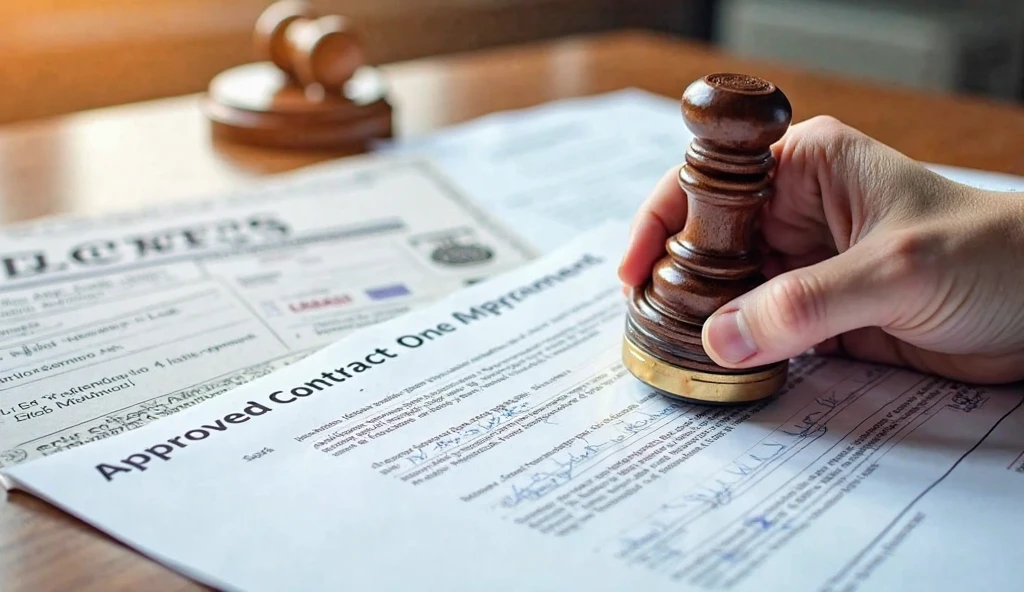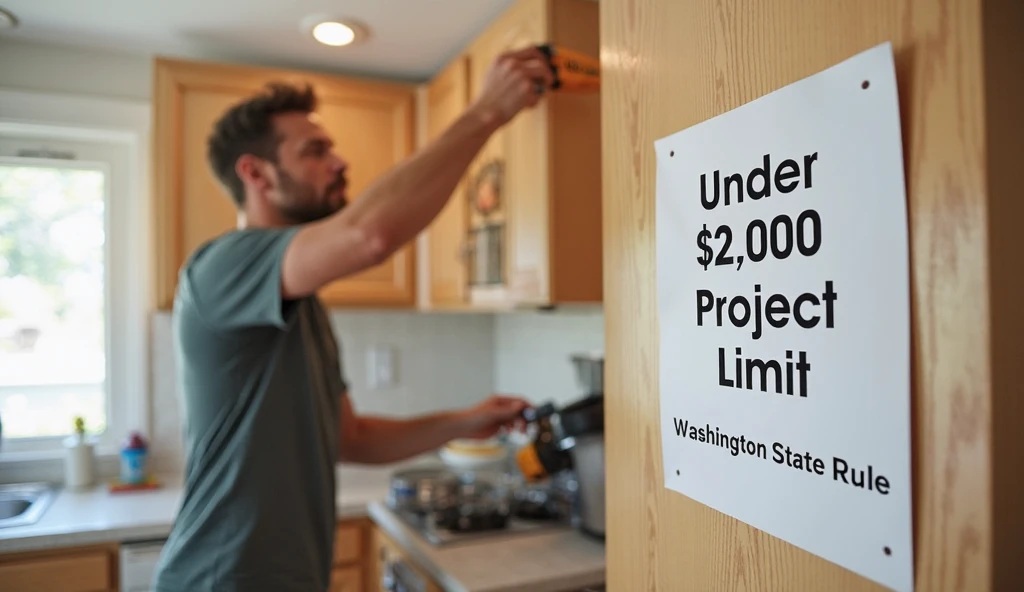In Washington State, understanding the distinction between general contractors and specialty contractors is essential for both homeowners and industry professionals. General contractors take on the responsibility of managing the entire scope of a construction project. They oversee all aspects from scheduling to hiring subcontractors and arranging materials, ensuring the project progresses smoothly and adheres to deadlines. This role requires coordination across various trades, making them crucial for large-scale construction efforts.
On the other hand, specialty contractors focus their expertise on specific trades such as plumbing, electrical work, or roofing. Their specialized skills ensure high-quality execution in these areas, often working directly under the supervision of general contractors to complete specific tasks. For instance, an electrical specialty contractor would handle the installation and maintenance of wiring, which requires adherence to extensive state regulations.
In Washington, contractors in both categories must comply with state regulations, but specialty contractors may need additional licensing or certifications, tailored to their specific trade. This is mandated to ensure safety and quality standards, especially in specialized jobs that might involve hazardous materials or specific technical expertise.

Handyman services in Washington operate under a different framework compared to licensed contractors, and it's vital to comprehend these distinctions to avoid legal pitfalls. Typically, handymen perform minor repairs and maintenance, operating without the extensive formal licensing required of contractors. They are considered specialty contractors but have distinct limitations regarding the scope of their work.
In Washington, a handyman can legally undertake tasks valued under $2,000. Projects that exceed this cost or involve substantial structural changes necessitate a contractor's license. This legal threshold is designed to safeguard homeowners from potential liabilities and ensure that more complex work is performed by professionals with appropriate qualifications.
Homeowners should be aware of these boundaries when engaging handyman services. Hiring unlicensed handymen for extensive projects can lead to safety issues, poor workmanship, or legal consequences. It's crucial to verify whether your project falls within the scope of a licensed contractor to ensure compliance with state laws and standards.
Contractors in Washington must obtain a valid contractor's license from the Department of Labor & Industries. This license is essential for ensuring legal operation, compliance with standards, and professional accountability. The licensing process involves submitting an application, paying a fee, and demonstrating relevant experience. Specialized licenses, especially in trades like plumbing or electrical work, may have additional requirements. Consumers are advised to verify their contractor’s license to safeguard against potential fraud and ensure compliant practices.
Contractors are required to carry liability insurance and bonding to protect clients from financial loss due to accidents, damages, or failure to complete the job. Insurance serves as a safeguard against potential damages, while bonding provides financial compensation if the contractor doesn’t fulfill their obligations. Clients should request proof of insurance and bonding before hiring a contractor, as it denotes professionalism and responsibility. This step not only ensures financial protection but also reflects the contractor’s commitment to industry standards.
To assess a contractor's suitability for your project, reviewing their portfolio of past work is a critical step. A comprehensive portfolio not only demonstrates the contractor's style and quality of workmanship but also reveals their capacity to handle projects similar to yours. This exploration offers a practical view of what you can expect in terms of design aesthetics and construction standards.
Besides portfolios, client testimonials and reviews are invaluable resources for gauging reliability and quality. Platforms like Yelp, Google Reviews, and the Better Business Bureau are treasure troves of detailed feedback on contractor performance. These insights can help avoid potential issues and ensure that you choose a trusted professional for your project.
Furthermore, directly contacting previous clients can provide firsthand experiences, offering deeper insights that online reviews might not fully disclose. Personal accounts can expose the finer details of a contractor’s work ethic and customer service, which are crucial for making an informed decision.
Trade association memberships and certifications play a significant role in establishing a contractor's credibility and expertise. Memberships often signify a commitment to adhering to industry standards and pursuing ongoing education, reflecting positively on a contractor’s commitment to their craft. Such affiliations can serve as strong indicators of a contractor’s professionalism.
Moreover, certifications in specialized areas, like LEED for green building, can set contractors apart by highlighting their expertise and dedication to advanced industry practices. These credentials not only demonstrate their ability to tackle specialized projects but also assure clients of their proficiency.
However, it's imperative that clients verify any claimed memberships or certifications, as these credentials serve as crucial indicators of a contractor’s professionalism and skill level. Validating such information ensures that you are working with qualified contractors who meet industry benchmarks and can deliver high-quality performance in their specific domains.
A well-drafted contractor agreement serves as the foundation of a successful project, outlining the essential scope of work, payment terms, and project timeline. These elements ensure clarity and mutual understanding between the contractor and the client.
Key provisions, such as change orders, warranty details, and termination clauses, are crucial for protecting both parties throughout the duration of the project. Incorporating these clauses helps manage expectations and minimizes the risk of conflicts.
Given the complexity of legal language, understanding these terms is essential. Seeking the assistance of a lawyer can be invaluable to ensure all aspects are comprehensible, thus preventing potential disputes and misunderstandings later on.

Dispute resolution clauses are integral components of contracts, providing a structured approach for addressing conflicts. Options like mediation or arbitration are often preferred as they can resolve disputes without the need for expensive and time-consuming litigation.
In Washington, understanding lien laws is imperative, as they allow contractors to place a lien on a property if payments are not received. This ability to file a lien can complicate property transactions and needs to be addressed clearly within the contract.
Educating clients about lien laws is essential, as it empowers them to comprehend their rights and responsibilities regarding payment and project completion, thus fostering a smoother contractual relationship.
What is the key difference between a general contractor and a specialty contractor?
General contractors manage the entire scope of a construction project, coordinating between various trades, while specialty contractors focus on specific trades like plumbing or electrical work.
Are handymen considered contractors in Washington State?
Yes, handymen are considered specialty contractors, but they have limitations on their work scope and cannot undertake tasks valued over $2,000 without a contractor's license.
Why is it important to verify a contractor’s license and insurance?
Verification ensures legal compliance, safeguards against possible fraud, and provides financial protection against potential workplace accidents or failures to complete the job.
How can I evaluate a contractor's experience effectively?
Review their portfolio of past projects, read client testimonials, and verify any trade association memberships or certifications they claim to have.
What should a contractor agreement include?
A contractor agreement should include the project's scope of work, payment terms, project timeline, change orders, warranty details, and termination clauses to protect both parties.
What are lien laws and why should they be included in contracts?
Lien laws allow contractors to place a lien on a property if payments are not made. Including them in contracts can help clients understand their rights and prevent future complications.